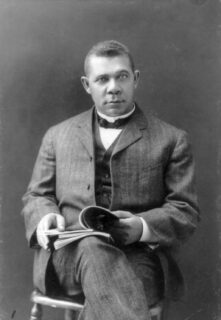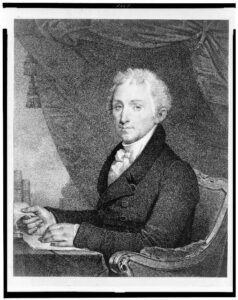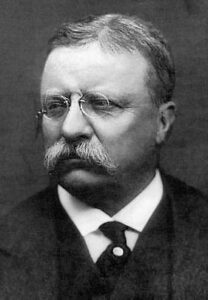
Is Progress Possible? Freedmen in the South
The prospects for social advancement of black freedmen, especially in the South, were uncertain in the period immediately following Reconstruction. Jim Crow laws did not become nearly universal until after the 1896 Plessy v. Ferguson ruling. Likewise, measures to disenfranchise black voters through poll taxes and literacy and property qualifications—offset by “understanding” and “grandfather” clauses that allowed poor whites to vote—were not widespread in the South until the 1890s. Reconstruction had been marred by violence that threatened black advancement, but some reformist leaders saw hope for gradual and steady advancement in the economic and social position of American blacks.
Booker T. Washington advocated the advancement of the race through industrial education. His Tuskegee Institute in Alabama, founded in 1881, provided a powerful model of the kind of education he proposed. In a speech before the National Education Association in July 1884, he explained the work of the Institute and optimistically predicted increasing racial harmony in the South as black citizens learned skills that white citizens valued and would buy. A more shadowed forecast was offered by the aging abolitionist and civil rights leader Frederick Douglass, in an essay published the same month in The North American Review.
Read Booker T. Washington’s 1884 speech, “The Educational Outlook in the South.”
Read Frederick Douglass’ “The Future of the Negro.”



